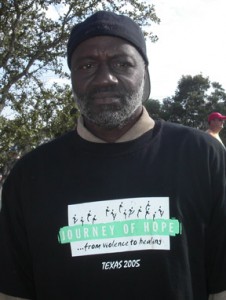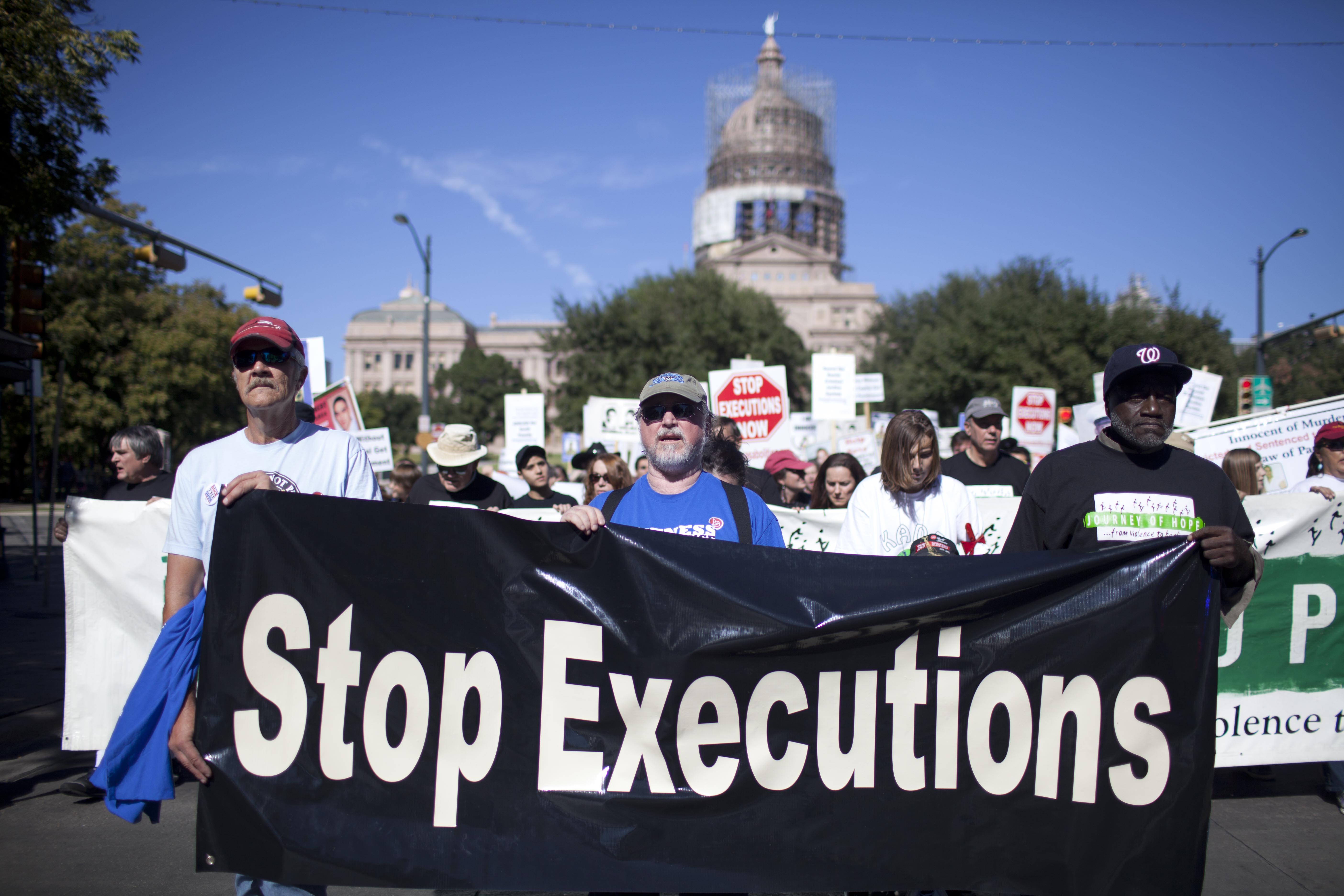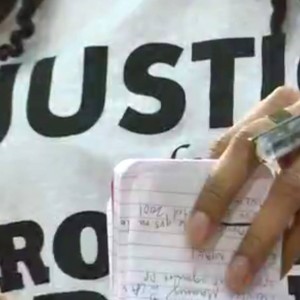We talked to Bill Pelke, president and cofounder of Journey of Hope…From Violence to Healing, and Shujaa Graham today and found out that Shujaa can come to the march. Shujaa was convicted of a murder he did not commit and spent three years on death row in California. He was later found innocent, exonerated and released.
Read more about Shujaa here: http://www.shujaa.org
Thanks to Bill, the Journey of Hope…from Violence to Healing and Shujaa!
Journey of Hope…from Violence to Healing is an organization led by murder victim family members joined by death row family members, family members of the executed, the exonerated, and others with stories to tell, that conducts public education speaking tours and addresses alternatives to the death penalty.
About Shujaa Graham
 Shujaa was born in Lake Providence, LA, where he grew up on a plantation. His family worked as share-croppers, in the segregated South of the 50s. In 1961, he moved to join his family who had moved to South Central Los Angeles, to try to build a more stable life. As a teenager, Shujaa lived through the Watts riot and experienced the police occupation of his community. In and out of trouble, he spent much of his adolescent life in juvenile institutions, until at age 18, he was sent to Soledad Prison.
Shujaa was born in Lake Providence, LA, where he grew up on a plantation. His family worked as share-croppers, in the segregated South of the 50s. In 1961, he moved to join his family who had moved to South Central Los Angeles, to try to build a more stable life. As a teenager, Shujaa lived through the Watts riot and experienced the police occupation of his community. In and out of trouble, he spent much of his adolescent life in juvenile institutions, until at age 18, he was sent to Soledad Prison.
Within the prison walls, Shujaa came of age, mentored by the leadership of the Black Prison movement. Shujaa taught himself to read and write, he studied history and world affairs, and became a leader of the growing movement within the California prison system, as the Black Panther Party expanded in the community.
In 1973, Shujaa was framed in the murder of a prison guard at the Deul Vocational Institute, Stockton, California. As a recognized leader within and without the prison, the community became involved in his defense, and supported him through 4 trials. Shujaa and his co-defendant, Eugene Allen, were sent to San Quentin’s death row in 1976, after a second trial in San Francisco. The DA systematically excluded all African American jurors, and in 1979, the California Supreme Court overturned the death conviction.
After spending three years on death row, Shujaa and Eugene Allen, continued to fight for their innocence. A third trial ended in a hung jury, and after a fourth trial, they were found innocent. As Shujaa often says, he won his freedom and affirmed his innocence in spite of the system.
Shujaa was released in March, 1981, and continued to organize in the Bay area, building community support for the prison movement, as well as protest in the neighborhoods against police brutality.
In the following years, Shujaa moved away from the Bay area. Shujaa learned landscaping, and created his own business by starting reading the bollinger bands trading strategy pdf. He and his wife raised three children, and became part of a progressive community in Maryland.
In 1999, Shujaa was invited to speak about his experiences on Death Row at fund raiser for the Alabama Death Penalty project, sponsored by the New York Legal Aid Foundation. This was a new beginning, and provided Shujaa the opportunity to begin to tell his story, his experiences and grow through work with other death penalty opponents.
About Bill Pelke
Bill recently authored a book entitled Journey of Hope…From Violence to Healing, which details the May 14, 1985 murder of his grandmother Ruth Pelke, a Bible teacher, by four teenage girls. Paula Cooper who was deemed to be the ringleader was sentenced to die in the electric chair by the state of Indiana. She was fifteen-years-old at the time of the murder
Pelke originally support the sentence of death for Cooper, but went through a spiritual transformation in 1986 after praying for love and compassion for Paula Cooper and her family. He became involved in an international crusade on Paula’s behalf and in 1989 after over 2 million people from Italy signed petitions and Pope John Paul II’s request for mercy, Paula was taken off of death row and her sentence commuted to sixty years.
Bill, a retired steelworker, has dedicated his life to working for abolition of the death penalty. He shares his story of forgiveness and healing, and how he came to realize that he did not need to see someone else die in order to heal from his grandmother’s death. He also helps organize Journey tours nationally and abroad.
Pelke has traveled to over forty states and ten countries with the Journey of Hope and has told his story over 5000 times.


Leave a Reply